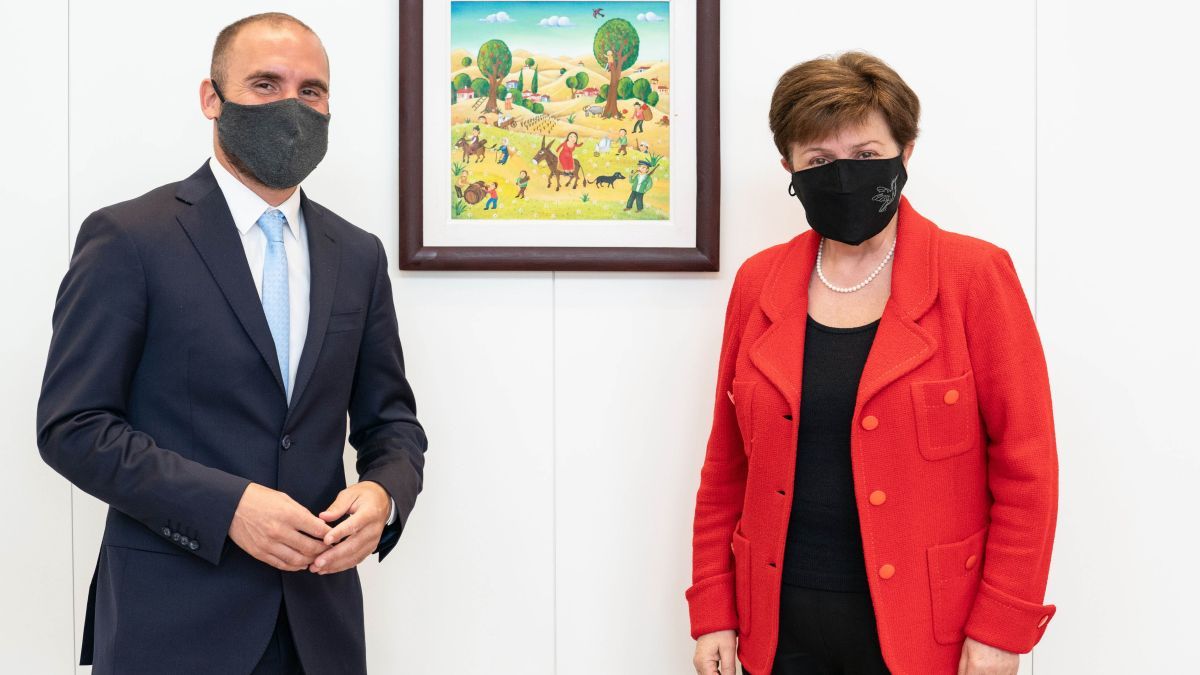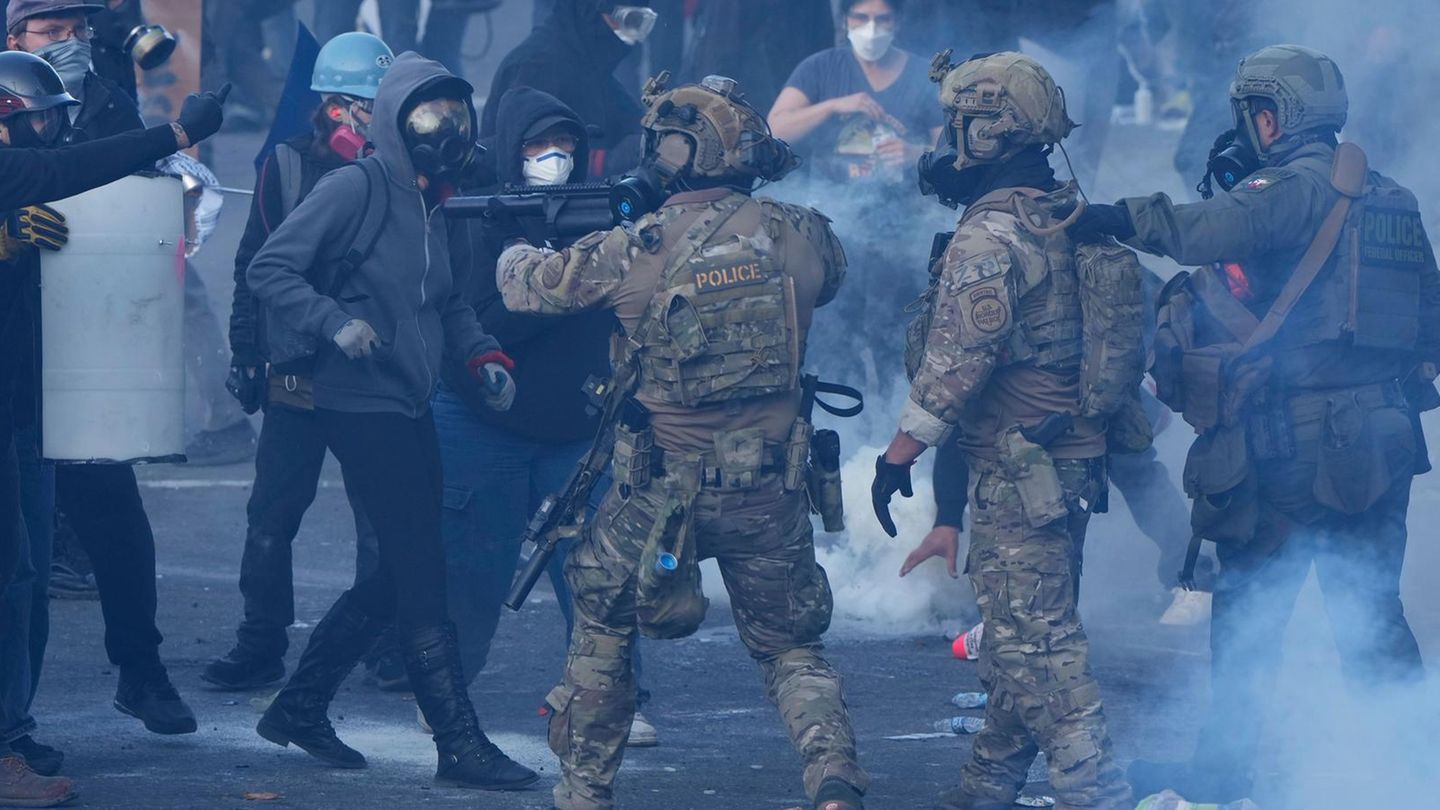The schedule provided by government sources contemplates obtaining the approval of the IMF’s technical staff before December 31 next – in this regard, they highlight the “Fluid” relationship that the Minister of Economy, Martin Guzman, cultivated with Julie Kozack, the Deputy Director in the Western Hemisphere Department.
Once obtained the approval of the technical staff, in the Government they are enthusiastic that the Board of Directors of the organization considers it and endorses it by mid-January, when it meets again after the end of the year recess. If these steps are completed, the agreement could be submitted for approval to Congress by February.
Tight
However, those who know the characteristics of these negotiations point out that for this to be fulfilled “tight” schedule, it would be necessary that an IMF mission come to the country before the end of the year.
So far it could not be confirmed, neither in local sources nor in the agency’s media, when a mission of the agency will visit the country.
In this context, other sources consider it more likely that eventually The IMF technical staff approves the Argentine proposal by January, with the subsequent treatment of the agreement by the Board in February and its submission to Congress in March.
Table 1.jpg
The urgency to reach an understanding with the Fund derives from the accumulation of maturities with this body in the coming months, in the face of a meager situation regarding foreign exchange reserves. Between December and March there are maturities with the IMF for 5,868 million dollars, when the net reserves held by the Central Bank total about 4,500 million dollars, according to economist data Martin Polo by Cohen.
However, a fact to take into account, according to international analysts, is that The eventual breach of the commitments would not immediately lead to the Fund declaring Argentina in default, and less if the conversations are on track. In any case, it would enter a situation of “Arreas” (arrears) in payments.
Necessary agreement
In favor of understanding with the Fund, the different aspects of the Frente de Todos consider that, after the inheritance received from macrismo and the passage of the pandemic, an agreement is necessary so as not to worsen the situation in the country.
In this position, the president agrees Alberto Fernandez and the vice president Cristina Fernández de Kirchner, to the Instituto Patria and the sector represented by the president of the Chamber of Deputies, Sergio Massa.
However, official sources also point out that There are differences regarding the magnitude by which the fiscal deficit must be reduced and the speed at which public accounts must reach a situation of surplus.
In this sense, sectors such as La Cámpora, an organization led by Maximum Kirchner, they speak in favor of a gradual correction of imbalances that do not slow down the growth of the economy.
It should be remembered that Both the IMF and private economists project a GDP expansion of just 2.5% by 2022, below the 4% contemplated in the budget project and “the 5 or 6% that could be grown” in the opinion of those in favor of a looser agreement with the Fund.
Doubts
Too There are doubts within the ruling party about the way in which Minister Guzmán is carrying out the negotiations.
The head of the Palacio de Hacienda was already publicly questioned by Cristina when she pointed out that she had room to increase public spending.
In these circles, Guzmán is criticized for carrying out “A covert adjustment” To the point that, calculated, the current projection of the primary fiscal deficit stands at only 2.6% of GDP and it is assumed that the year will end with an imbalance somewhat higher than 3% but “For the advance of expenses for next year.”
Table 2.jpg
Both Kirchnerism and the opposition (and some members of the National Cabinet) criticize what is considered the character “closed” with which Minister Guzmán manages.
Proof of this is that, for example, the opposition economists have not had any consultation or received any information about the multi-year program announced by the president and being prepared by the head of the Palacio de Hacienda.
The origin of the multi-year plan is a subject of debate within the ruling party. From the Instituto Patria it is pointed out that it was this sector of Kirchnerism that promoted the idea, while from the Casa Rosada it is considered that it was an initiative of the Executive Power.
From now on, the articulation of this program is complex, particularly due to the different points of view that sectors of Kirchnerism and Minister Guzmán have on economic policy, endorsed by President Fernández, according to official sources.
From this perspective, they rescue the role “conciliator” that Sergio Massa is having at a time when the relationship between Alberto and Cristina is “damaged”, as they coincide in both environments.
For now, even the most critical sectors of Kirchnerism consider, as they pointed out to Ambit, that A change at the head of the Ministry of Economy in the middle of negotiations with the Fund would not be advisable.
However, critics continue to be heard from Cristina’s surroundings to government management and therefore, raising the need for Cabinet changes possibly for March.
Source From: Ambito
David William is a talented author who has made a name for himself in the world of writing. He is a professional author who writes on a wide range of topics, from general interest to opinion news. David is currently working as a writer at 24 hours worlds where he brings his unique perspective and in-depth research to his articles, making them both informative and engaging.




